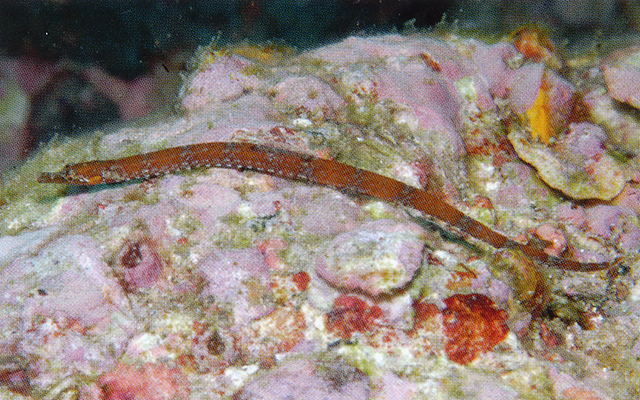| Syngnathidae (Pipefishes and seahorses), subfamily: Syngnathinae |
| 7.15 cm SL (male/unsexed) |
|
benthopelagic; marine; depth range 2 - 45 m |
| Indo-West Pacific: Kuwait to Ko Samui Island, Gulf of Thailand. |
|
Dorsal soft rays (total): 19-24; Anal soft rays: 2-4. Description: Characterized by brownish red color with about 12 diffuse greyish bars and about 20 white spots along edge of inferior trunk ridge; 10 caudal rings; rings 15 + 31 - 35; discontinuous superior trunk and tail ridges; straight lateral trunk ridge, ends near anal ring; continuous inferior trunk and tail ridge; entire median dorsal snout ridge elevated posteriorly; length of snout 2.5-3.1 in head length; depth of snout 2.0-3.0 in snout length; head length 7.9-10.4 in SL (Ref. 90102). |
| Some specimens have been taken in surface tow nets and with nightlight and dipnets; others taken in a dredge sample (Ref. 5316). Ovoviviparous (Ref. 205). The male carries the eggs in a brood pouch which is found under the tail (Ref. 205). Found in sand, mud and coral bottoms in 2-45 m (Ref 90102). |
|
Least Concern (LC); Date assessed: 27 August 2015 Ref. (130435)
|
| harmless |
Source and more info: www.fishbase.org. For personal, classroom, and other internal use only. Not for publication.

